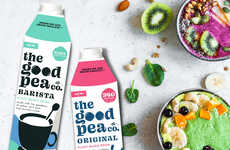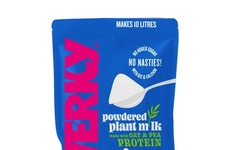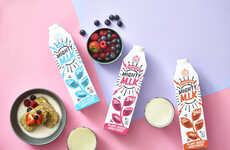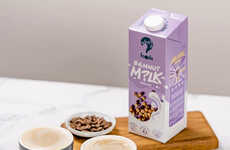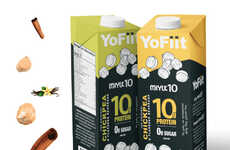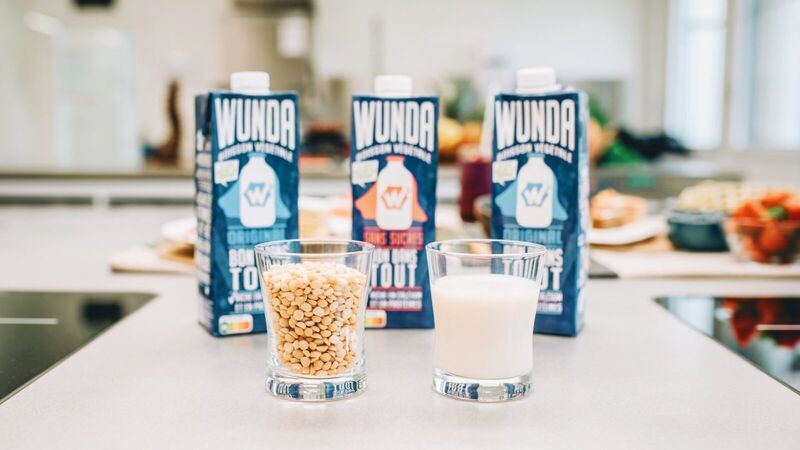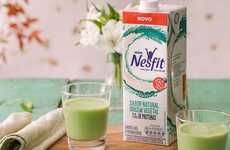
Wunda is a New Plant-Based Milk Brand That Uses Yellow Peas
Laura McQuarrie — May 5, 2021 — Eco
References: cdn.livekindly.co
Wunda makes plant-based pea milks using yellow peas, an ingredient that's known as one of the most sustainable and nutrient-dense crops in the world. Available in original, unsweetened and chocolate varieties, the plant-based pea milk products will soon be launching in France, the Netherlands and Portugal.
The pea milk is packed with calcium, protein and fiber, plus the pea milk is carbon-neutral. The products may be used in a wide variety of applications, including hot or cold drinks, as well as cooking and baking. The qualities of the product also make it a barista-friendly choice for making quality beverages that are rich in texture and taste.
Pea milk has the potential to become one of the most popular kinds of alternative milks, thanks to their small environmental footprint and high protein content.
The pea milk is packed with calcium, protein and fiber, plus the pea milk is carbon-neutral. The products may be used in a wide variety of applications, including hot or cold drinks, as well as cooking and baking. The qualities of the product also make it a barista-friendly choice for making quality beverages that are rich in texture and taste.
Pea milk has the potential to become one of the most popular kinds of alternative milks, thanks to their small environmental footprint and high protein content.
Trend Themes
1. Pea Milk Products - The rise of pea-based plant milks as a sustainable and nutritious alternative to dairy creates opportunities for food and beverage startups to innovate in this space.
2. Carbon-neutral Foods - Sustainability-conscious consumers are increasingly interested in purchasing carbon-neutral food products, paving the way for businesses to differentiate themselves by offering viable alternatives.
3. Barista-friendly Plant Milks - The growing demand for plant-based options in cafes has created an opportunity for startups to offer barista-friendly plant milks that not only deliver on taste and texture but also sustainability and nutritional value.
Industry Implications
1. Dairy Alternatives - The dairy alternative industry, which includes both established players and startups, can capitalize on the surging demand for plant-based options that meet the needs of health and environmentally conscious consumers.
2. Food and Beverage Manufacturing - Food and beverage manufacturers aiming to reduce their carbon footprint can incorporate carbon-neutral raw materials in their product formulations, as well as invest in sustainable packaging and production practices.
3. Cafes and Coffee Shops - Cafes and coffee shops can cater to the growing demand for plant-based options by adding pea milk to their menu, while also emphasizing the sustainability, nutritional value, and versatility of the product.
1.9
Score
Popularity
Activity
Freshness

